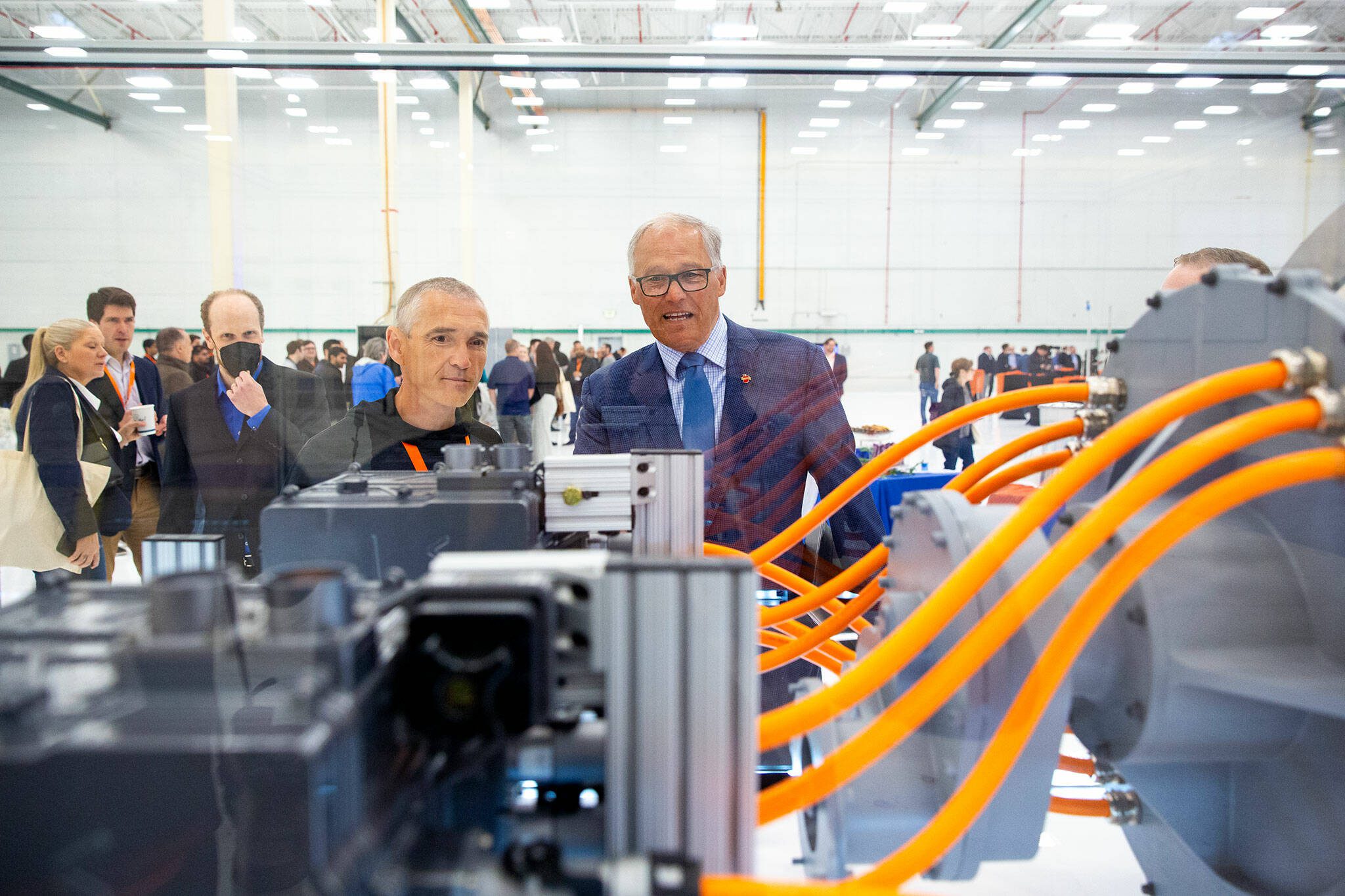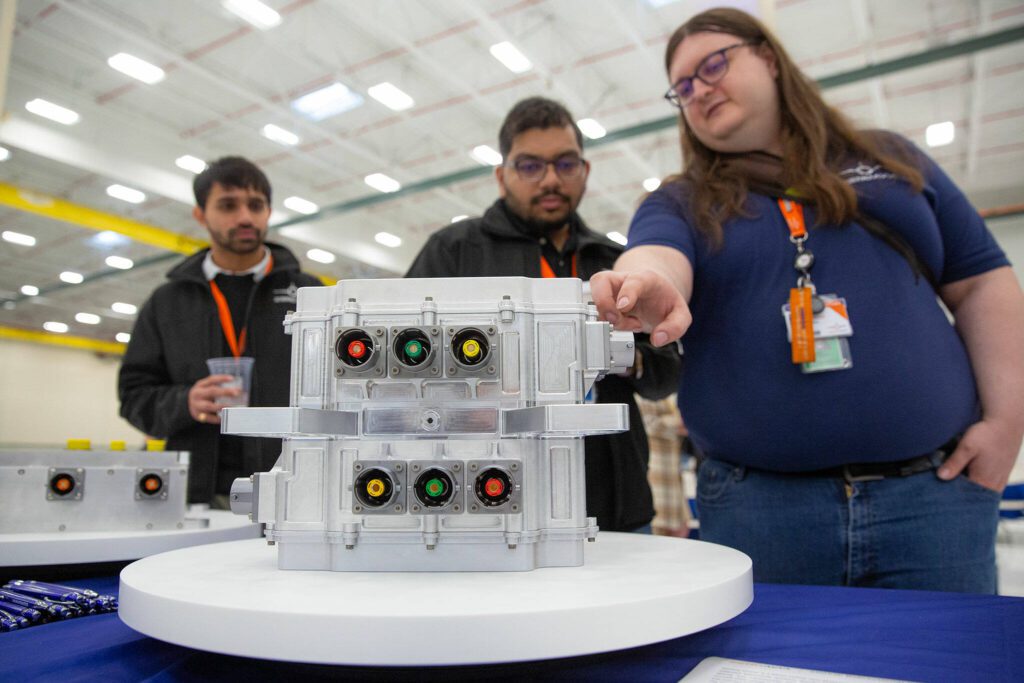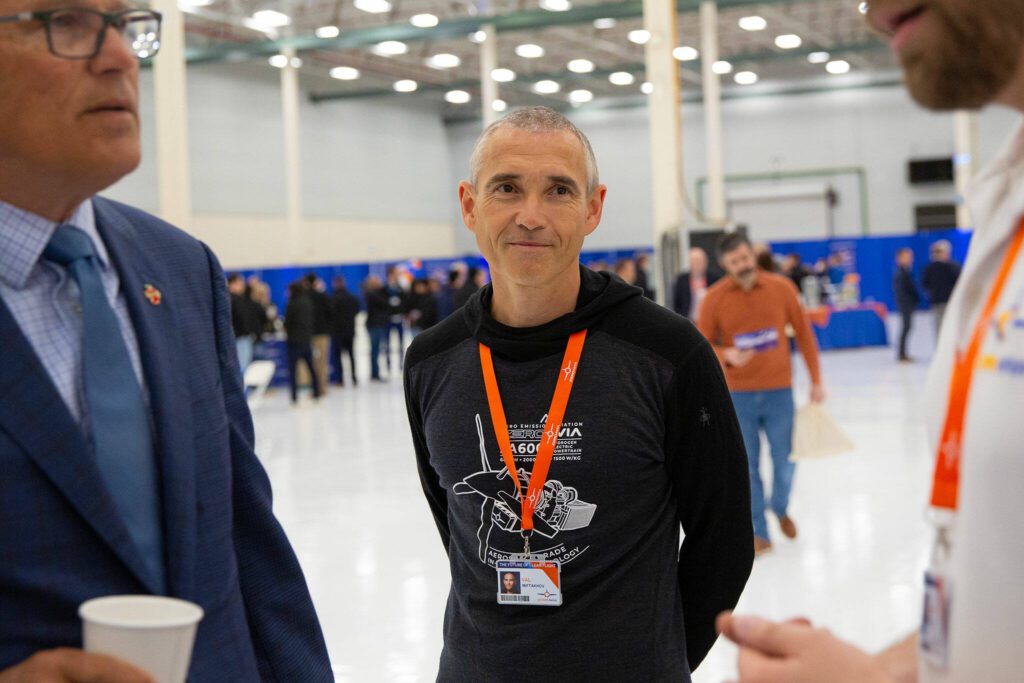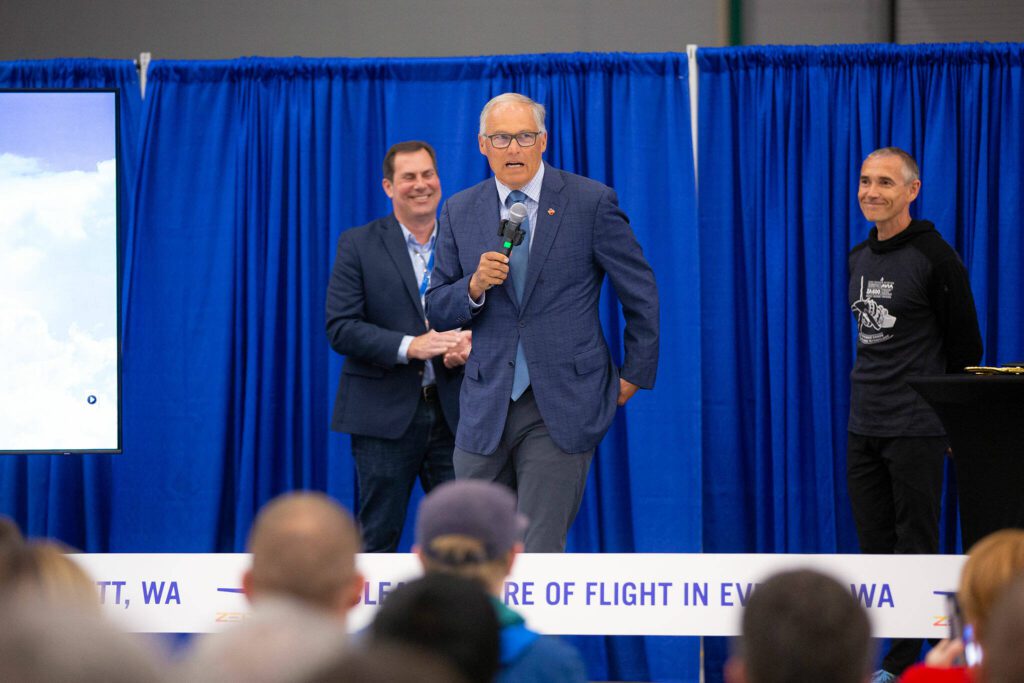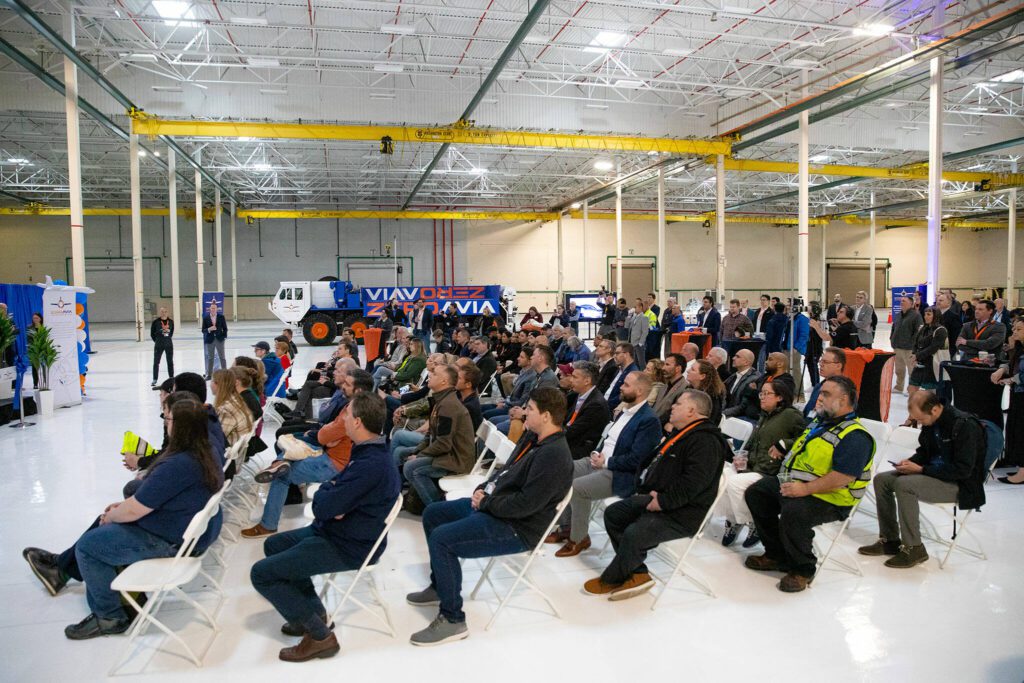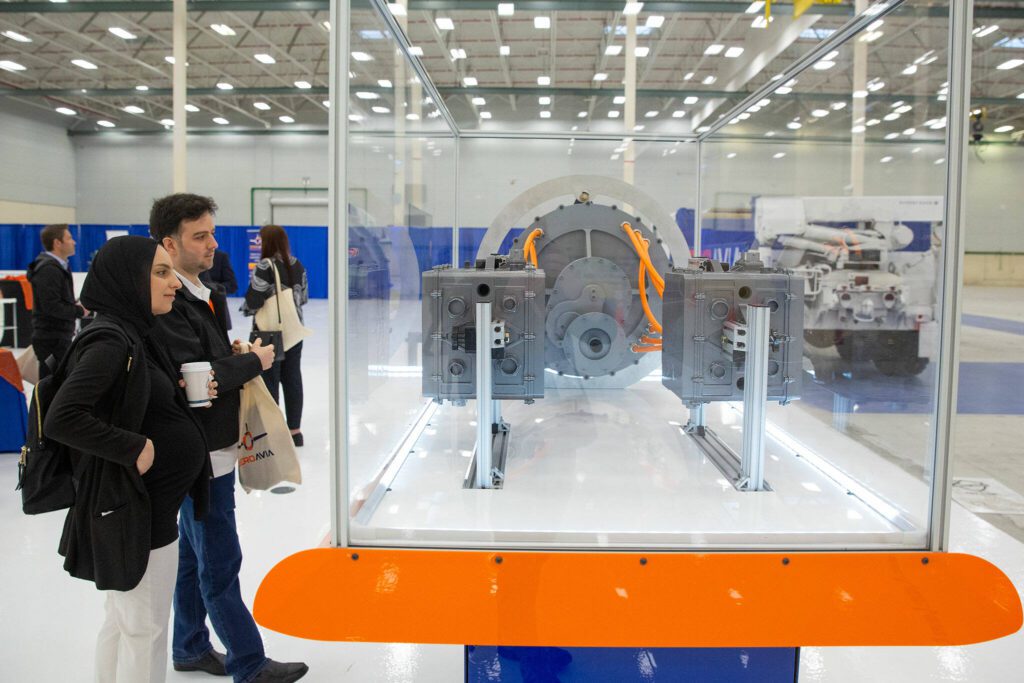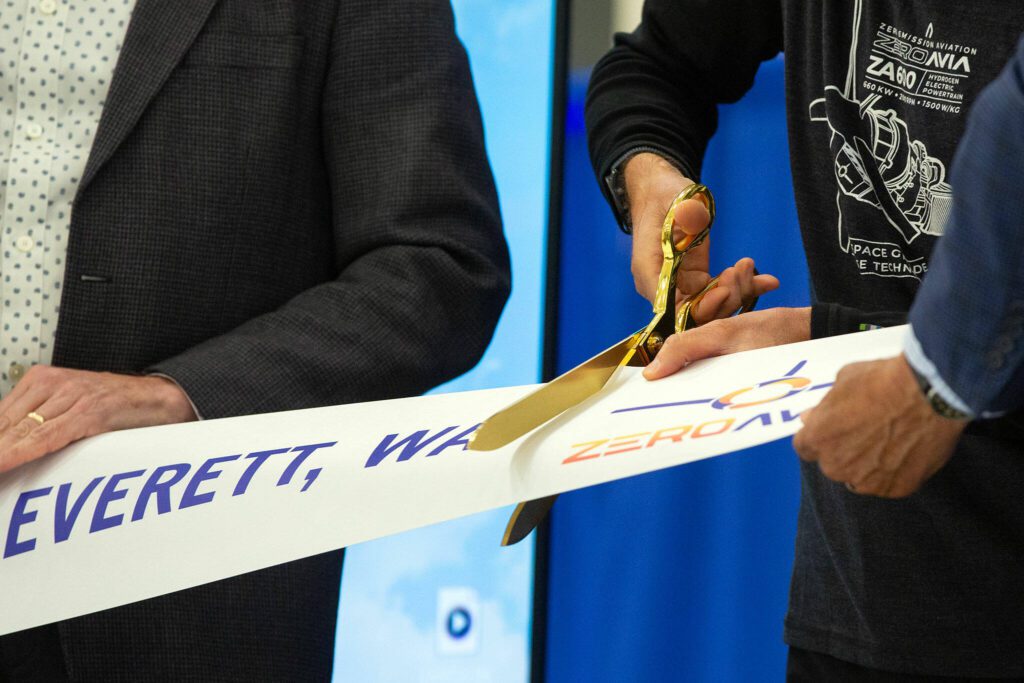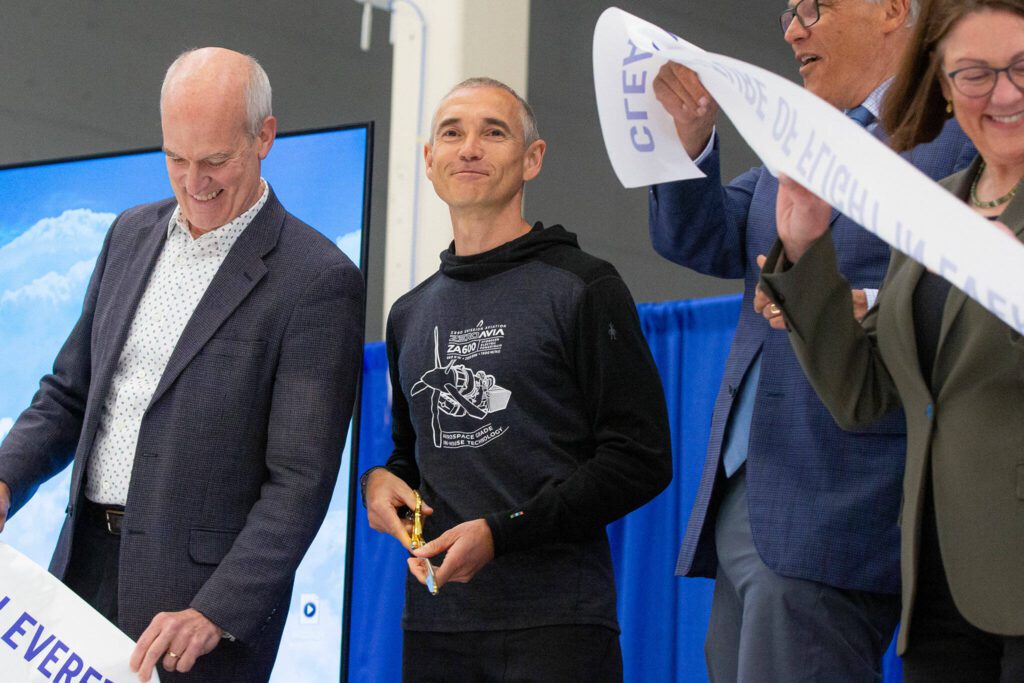EVERETT — Two years ago, ZeroAvia moved into a small research and development facility at Paine Field.
On Wednesday, the company developing hydrogen-electric powered airplanes opened a new 136,000-square-foot Propulsion Center of Excellence, for a “sevenfold increase” in space, said ZeroAvia’s CEO and founder, Val Miftakhov.
The center, the company’s first manufacturing site, will produce hydrogen-electric propulsion systems for commercial distribution. The original research facility, with about 50 employees, will also move in.
As the company scales up production, the manufacturing center could employ hundreds, he said.
“This will be our largest location by footprint,” said Miftakhov, who founded the aerospace company in 2017.
When that happens, “the largest part of our workforce will be here,” Miftakhov said. ZeroAvia currently employs about 300 people worldwide, in Everett, California and the United Kingdom.
ZeroAvia marked the center’s debut Wednesday with a ribbon-cutting ceremony. Gov. Jay Inslee, U.S. Rep. Rick Larsen, D-Everett, and U.S. Rep. Suzan DelBene, D-Medina, and county officials attended.
“With the opening of the new facility today, we are also able show ZeroAvia’s growth from ambitious startup into a clean aerospace manufacturing powerhouse, with a production site officially opened in Everett,” Miftakhov told an audience of about 150 people. “This area is becoming one of the major sites for zero emission aviation worldwide.”
Inslee called the center’s opening a milestone that will advance the state’s standing as an aviation powerhouse and clean energy innovator.
ZeroAvia hopes to certify a propulsion system next year for an airplane with up to 20 seats and a 300-mile range. A push to certify a larger powertrain for a 30- to 90-seat plane with a 700-mile range is targeted for 2027, the company said.
It has already received approval from federal regulators in the United States and Europe to test its engines in three aircraft. So far, the company said it has booked nearly 2,000 preliminary orders for its propulsion systems.
Hydrogen can either be burned as a fuel in a jet engine or it can be used to power a hydrogen fuel cell using chemical energy to produce electricity.
ZeroAvia’s engine and powertrain are built around renewable hydrogen stored in tanks. During flight, fuel cells convert the stored hydrogen to electricity, powering the airplane’s electric motors.
The hydrogen-electric propulsion system’s only emission is water vapor, the company said.
Its competitors include California’s Universal Hydrogen and Germany’s H2Fly.
Still, some experts cite drawbacks to the technology, saying the amount of space needed to store hydrogen aboard smaller aircraft could reduce the range and payload, making the technology financially impractical, according to a Business Insider report.
However, ZeroAvia is exploring several innovations, including storing gaseous hydrogen at cold temperatures, which increases the fuel’s energy density and potentially enables a longer range.
ZeroAvia set up shop at the Everett airport in 2022. The following year, Alaska Airlines provided the company with a 76-seat Bombardier Q400, also known as a Dash 8-400.
The turboprop airplane will be retrofitted with a hydrogen-electric propulsion system. ZeroAvia is developing a hydrogen fuel-electric propulsion system large enough to power the Bombardier and other aircraft of its size.
The company’s investors include Airbus, United Airlines, Alaska Airlines parent company Alaska Air Group, British Airways, the Neom Investment Fund, Barclays Sustainable Impact Capital, Horizons Ventures, Breakthrough Energy Ventures, Ecosystem Integrity Fund, Amazon’s Climate Pledge Fund and Bill Gates’ Breakthrough Energy Ventures, according to a company statement.
In recent years, a small but growing cadre of companies focused on developing zero- and low-emission aviation aircraft, motors and fuel have come to call Snohomish County home, including magniX in Everett and Eviation Aircraft in Arlington.
The Sustainable Aviation Fuel Research and Development Center, a joint venture between Snohomish County and Washington State University, is expected to open this year in a temporary location at the county-owned airport. The center, which received $6.5 million in startup funds from the state Department of Transportation, will collect sustainable aviation fuel samples from around the world and test them for safety, performance and chemical similarity to conventional jet fuel.
Aerospace is a $70 billion industry in the state and supports more than 250,000 jobs. Snohomish County’s aerospace cluster includes more than 500 companies, according to the state Department of Commerce and Economic Alliance Snohomish County.
DelBene called the hydrogen fuel-cell engines ZeroAvia will begin producing in Everett “a huge step in decarbonizing the aviation sector.”
The race is on to reduce or eliminate the airline industry’s reliance on conventional petroleum-based fuels. So far, hydrogen-powered and electric-powered aircraft have emerged as the most promising technologies.
Aviation is responsible for 9% of transportation emissions in the United States and 3% of the nation’s greenhouse gas production, according to the Environmental Protection Agency.
Janice Podsada; jpodsada@heraldnet.com; 425-339-3097; Twitter: @JanicePods.
Talk to us
> Give us your news tips.
> Send us a letter to the editor.
> More Herald contact information.
